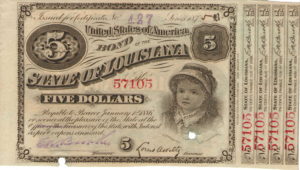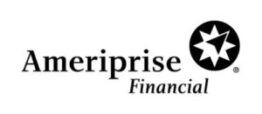
VFG Securities, Inc., as well as Jason B. Vanclef, of Culver City, California, a stockbroker and chief executive officer currently registered with VFG Securities, Inc., were censured by Financial Industry Regulatory Authority (FINRA) per an Office of Hearing Officers’ Order Accepting Offer of Settlement containing findings that Vanclef made investment recommendations to customers based upon false and misleading statements. Department of Enforcement v. Jason Bryce Vanclef, No. 2013038283001 (Feb. 9, 2016).
According to the Order, from September 22, 2009 to January 21, 2013, the firm and Vanclef made distributions of a book called The Wealth Code, which Vanclef authored and published. The Wealth Code was reportedly utilized by Vanclef as a sales driver; to promote investments in real estate investment trusts and direct participation programs.
The Order revealed that customers were provided with The Wealth Code through firm events, and Vanclef additionally handed customers the books via personal meetings. Apparently, an estimated ninety-five percent of the firm’s revenue from November of 2010 to June of 2012 came from non-traded real estate investment trusts and direct participation programs, as well as alternative investments.
Evidently, The Wealth Code contained statements regarding capital preservation and high returns pertaining to these products that FINRA deemed misleading and inaccurate. Further, FINRA found that such statements were inconsistent with information detailed in the non-traded real estate investment trust and non-traded direct participation program prospectuses. Specifically, the Order stated that such products contained significant principal risk; investors could suffer serious investment losses.
Vanclef also evidently made lavish statements concerning investment returns that FINRA deemed unwarranted. Particularly, investors were told via The Wealth Code that it was reasonable for them to expect up to twelve percent returns through investing in tangible or real assets recommended by Vanclef, and for such returns to be earned on a consistent basis. FINRA found that Vanclef’s remarks in this regard constituted claims which were not warranted, as such statements were based upon promised future returns, and such statements deprived prospective investors with properly evaluating Vanclef’s claims. FINRA additionally found that The Wealth Code was not reviewed or authorized for use as sales literature through a VFG Securities principal, nor disclosed to FINRA as NASD rules had required.
The Order additionally stated that Vanclef and his firm disseminated spreadsheets to four of the firm’s customers which contained recommendations for investments. These spreadsheets, per the Order, consisted of misleading and false timelines for liquidity pertaining to the non-traded real estate investment trusts and non-traded direct participation programs. Particularly, spreadsheets containing the recommendations reportedly characterized the products incorrectly as income based investments, and the spreadsheets made faulty projections concerning the investments’ performance.
In addition, the firm’s supervisory systems reportedly were deficient. In particular, Vanclef and his firm provided customers with consolidated investment reports when personally meeting with customers; however, the firm reportedly failed to supervise content contained in the consolidated report to be sure that customers were provided with updated valuations concerning investments purchased elsewhere. Furthermore, VFG reportedly failed to supervise investment recommendations which were made to customers regarding illiquid alternative investments in order to make sure that customers’ assets were not overly concentrated in such investments.
As a result of the foregoing, FINRA found that the Vanclef and VFG’s conduct was violative of FINRA Rule 2010, as well as 2210(d)(1)(A), 2210(d)(1)(B), and 2210(d)(1)(D). FINRA additionally found that the firm’s conduct was violative of NASD Rules 3010(a), 3010(b), 2210(b)(1)(A), and 2210(c)(2).
FINRA Public Disclosure reveals that Vanclef has been subject to six customer initiated investment related arbitration claims. Specifically, on November 10, 2009, a customer initiated investment related arbitration claim involving Vanclef’s conduct was settled for $600.00 in damages based upon allegations that Vanclef excessively charged the customer within the customer’s fee based account.
On June 27, 2012, another customer initiated investment related arbitration claim involving Vanclef’s actions was resolved for $100,000.00 in damages based upon allegations that Vanclef made unsuitable investment recommendations to the customer. Further, on January 28, 2013, a customer initiated investment related arbitration claim involving Vanclef’s conduct was settled for $107,000.00 in damages based upon allegations that Vanclef made unsuitable investment recommendations, and omitted facts to the customer concerning investment risks.
Additionally, on March 28, 2013, a customer initiated investment related arbitration claim involving Vanclef’s actions was resolved for $7,590.00 in damages based upon allegations that Vanclef made omissions and misrepresentations, and unsuitable recommendations to the customer concerning real estate investment trusts and private placement investments.
On December 25, 2013, another customer initiated investment related arbitration claim was settled for $237,500.00 in damages based upon allegations that Vanclef, while associated with Madison Avenue Securities, negligently handled the customer’s investment account, and breached his contractual and fiduciary duties to the customer.
Guiliano Law Group
Our practice is limited to the representation of investors. We accept representation on a contingent fee basis, meaning there is no cost to you unless we make a recovery for you. There is never any charge for a consultation or an evaluation of your claim. For more information, contact us at (877) SEC-ATTY.








